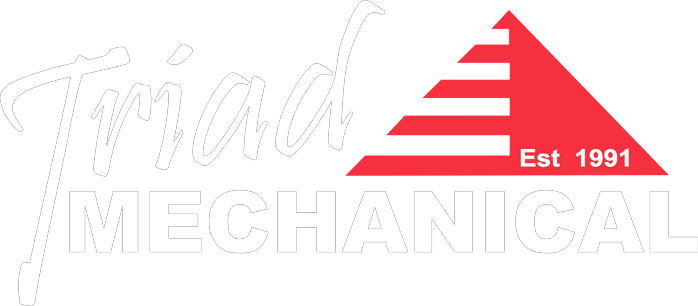The first day of winter is less than a month away. Furnaces have been turned on and fireplaces prepared for cold weather. Many parts of the country have already had significant snow accumulation. Residents of Suwanee may not see as much snow as people living in Buffalo, NY, where average annual snowfall is 93.4 inches, but they still need to be prepared for the effects of snow. Learn more here how snow and ice could harm your HVAC system.
Snow Can Block Your Furnace’s Air Intake
Your furnace has a give and take relationship with the air outside your home. The furnace takes air in from outside through the air intake. After using the air, the furnace pushes it back out through the furnace exhaust. If you get enough snow piled up close to the outside unit, it can block air intake. Blocked air intake can cause a system shut-down, which results is a serious cool down. Your home will stay cold until you clear the blockage and re-fire the system. If you’re having problems with your furnace starting, check for a blockage in the intake pipe.
[/et_pb_text][/et_pb_column][et_pb_column type=”2_5″ _builder_version=”4.9.4″ _module_preset=”default” global_colors_info=”{}”][et_pb_image src=”https://triadmechanical.com/wp-content/uploads/2021/09/Triad-Mechanical_Learn-How-Snow-Affects-Your-HVAC-System_IMAGE1-480×327-1.jpg” title_text=”Triad-Mechanical_Learn-How-Snow-Affects-Your-HVAC-System_IMAGE1-480×327″ align=”center” _builder_version=”4.10.8″ _module_preset=”default” global_colors_info=”{}”][/et_pb_image][/et_pb_column][/et_pb_row][et_pb_row _builder_version=”4.9.4″ _module_preset=”default” custom_padding=”0px|||||” global_colors_info=”{}”][et_pb_column type=”4_4″ _builder_version=”4.9.4″ _module_preset=”default” global_colors_info=”{}”][et_pb_text _builder_version=”4.10.8″ _module_preset=”default” header_2_line_height=”1.3em” header_3_line_height=”1.3em” custom_margin=”4px|||||” hover_enabled=”0″ global_colors_info=”{}” sticky_enabled=”0″]Blockage in Your Furnace’s Exhaust
Heavy snow accumulation affects air intake but it can also cause problems with your furnace’s exhaust system. Remember that the furnace pushes used air back outside through the exhaust pipe. A blockage may cause a buildup of pressure and heat, which puts your home at risk for fire. Carbon monoxide buildup is another danger caused by an exhaust pipe blockage. Most furnaces have a safety switch, which shuts the system down if it’s blocked. In most cases, a homeowner can remove drifting snow from about the outside part of the furnace and cure most problems. If you’ve removed snow and ice and still have problems with the furnace, call a technician in heating and air conditioning repair in Suwanee, GA. It’s best that a professional inspect the system and ensures it’s safe.
Snow Can Cause Corrosion
The outside unit of a furnace and many of its parts are constructed of metal. When metal gets wet and stays wet for an extended period of time, it corrodes. When snow piles up on top of an outdoor heat pump or HVAC unit you may end up with water damage. Outdoor HVAC units aren’t fragile and are designed for strength against inclement weather. That doesn’t mean you should ignore snow and ice buildup. You may not realize it but the inside of the outdoor unit has coils and other vulnerable parts. If snow isn’t removed, those parts are susceptible to corrosion and rust development. Avoid corrosion by sweeping snow off as soon as you can.
Fans and Fins
You already understand the importance of keeping your outside heat pump or HVAC unit free of snow. Did you know there’s a way to clear snow without harming any of the parts in the unit? When shoveling snow be careful about touching the condenser with the shovel.
[/et_pb_text][/et_pb_column][et_pb_column type=”2_5″ _builder_version=”4.9.4″ _module_preset=”default” global_colors_info=”{}”][et_pb_image src=”https://triadmechanical.com/wp-content/uploads/2021/09/Triad-Mechanical_Learn-How-Snow-Affects-Your-HVAC-System_IMAGE2-480×360-1.jpg” title_text=”Triad-Mechanical_Learn-How-Snow-Affects-Your-HVAC-System_IMAGE2-480×360″ align=”center” _builder_version=”4.10.8″ _module_preset=”default” global_colors_info=”{}”][/et_pb_image][/et_pb_column][/et_pb_row][et_pb_row _builder_version=”4.9.4″ _module_preset=”default” custom_padding=”0px||2px|||” global_colors_info=”{}”][et_pb_column type=”4_4″ _builder_version=”4.9.4″ _module_preset=”default” global_colors_info=”{}”][et_pb_text _builder_version=”4.10.8″ _module_preset=”default” header_2_line_height=”1.3em” header_3_line_height=”1.3em” global_colors_info=”{}”]Inside the condenser, you’ll see fins, which are used as heat transfers for the condenser. Banging them with a shovel or any other tool should be avoided. Otherwise, they can end up being bent, which could make a phone call for heating and air conditioning service in Suwanee, GA necessary.
In Suwanee, GA, you can rely on the HVAC experts at Triad Mechanical. Call us today and request more information for HVAC services before snow arrives.

